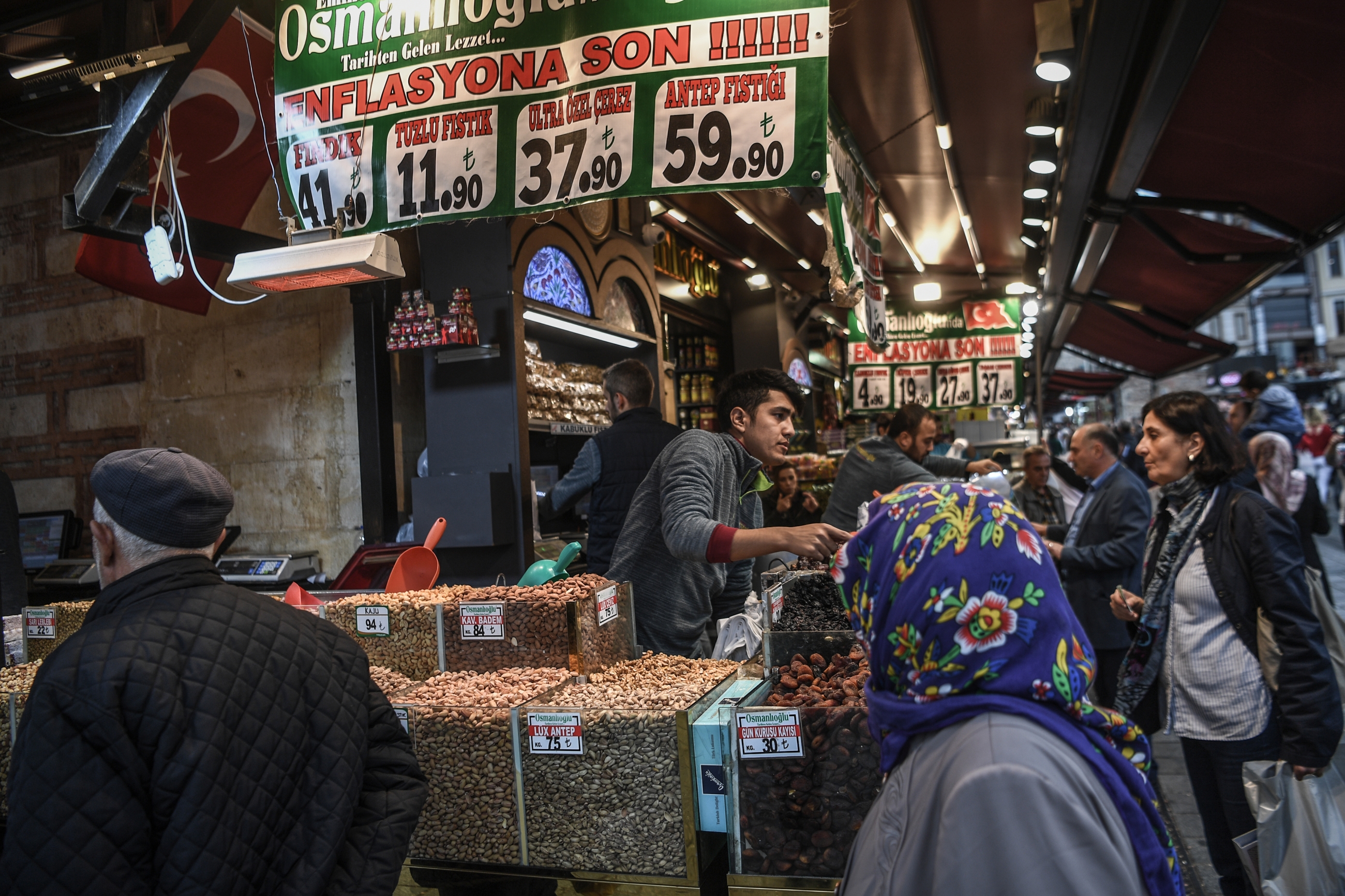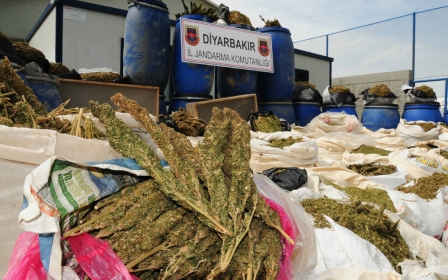Turkey cracks down on 'food terrorism' with government-run shops

State-run stalls have been established across Turkey to combat the rising price of fruit and vegetables, as the government blames speculators and middlemen for inflicting "food terrorism" on the country.
In Istanbul’s world-famous Taksim square, queues of people have been pictured waiting to shop in front of one of the stalls.
“From producer to consumer, first hand vegetable. Total fight against inflation,” reads a banner on the stall.
The prices of the vegetables in these government-operated, ad-hoc shops are around 50 percent cheaper than regular grocery stores.
The government, through local municipalities, plans to establish 50 “regulated sale” points in Istanbul and 15 in Ankara.
New MEE newsletter: Jerusalem Dispatch
Sign up to get the latest insights and analysis on Israel-Palestine, alongside Turkey Unpacked and other MEE newsletters
Citizens are only permitted to buy 3kg of each vegetable in stock.
High inflation
Anger has mounted in Turkey in recent weeks over a 30 percent surge in year-to-year food prices.
According to the International Monetary Fund, Turkey currently has one of the highest rates of inflation in the world.
Coming ahead of potentially significant local elections, President Recep Tayyip Erdogan moved to tackle the price rises.
First, he criticised the “overcharged” prices in markets, and blamed middlemen for cutting too much commission.
'Prices of eggplants, tomatoes, potatoes and cucumbers began to escalate. It was a terrorist attack'
- Recep Tayyip Erdogan, president
Then he declared on Monday that his government was fighting a campaign of “food terrorism”, waged against Turkey by speculators.
“In recent days they began playing a game on Turkey. Prices of aubergines, tomatoes, potatoes and cucumbers began to escalate. It was a terrorist attack,” said the president.
“Now the prices are halved. We will get to rice, bulgur, lentils as well as cleaning products."
Turkish Treasury and Finance Minister Berat Albayrak said last week that food inflation had hit a 20-year high in the previous month. He added that the "latest information suggests that something intriguing has been going on" with regards to the vegetable prices.
"We will take necessary measures. Our citizens will see that any problem could be resolved if the state steps in," he said.
Fresh vegetable and fruit prices increased 29.7 percent in January compared to previous months, as the annual rise for those products was 64 percent, according to data released by the Turkish Statistical Institute.
Istanbul Metropolitan Municipality reported on Tuesday that it sold 297.7 tonnes of vegetables in the first day of the “regulate sale” points. Tomatoes were the most popular product with 118 tonnes sold.
Trade Minister Ruhsan Pekcan also announced that officials had carried out inspections of wholesale vegetable and fruit markets in Istanbul, Ankara, Antalya, Mersin and Adana. She said the inspections revealed excessive prices were being charged.
She added that 76 companies had been fined around 810,000 liras ($154,058) for selling unregistered products and other violations.
A permanent solution
Critics have blamed the government for seeking temporary solutions for a major problem before local elections.
Main opposition Republican People’s Party (CHP) MP Omer Fethi Gurer told Turkish media that a permanent solution would have to include a long-term, strategic plan that could provide secure provision of vegetables.
“We cannot reduce the prices for agricultural products without finding ways to decrease seed, fertiliser and energy costs.” he said.
Mehmet Ali Berber, a press adviser for Turkish Treasury Minister Berat Albayrak, said on Tuesday that “regulated sale” points had already had an impact on grocery chain stores as they made significant price reductions in their vegetable sections.
According to statistics released by the Istanbul municipality, general marketplace prices on some vegetables such as green peppers, spinach and tomatoes indeed seem to have decreased.
Multiple interviewees who purchased goods from government-run stalls told Turkish media that they were happy to do so.
Like Erdogan, they also blamed middlemen and profiteers.
Erdogan provoked some anger last week after he suggested that complaints about the price of food were less important compared to the nation's security.
“Do you know how much a bullet costs? Here we are fighting against the terrorists, there you are complaining about the prices of tomatoes, peppers and potatoes,” he said during an election rally in the central Anatolian city of Sivas.
He said such complaints ended up benefiting "Hans or George", a phrase he regularly uses to refer to foreign powers.
“What is the cost of my soldier’s uniform and the struggle he’s giving against terrorists? Think about it!”
Middle East Eye delivers independent and unrivalled coverage and analysis of the Middle East, North Africa and beyond. To learn more about republishing this content and the associated fees, please fill out this form. More about MEE can be found here.




